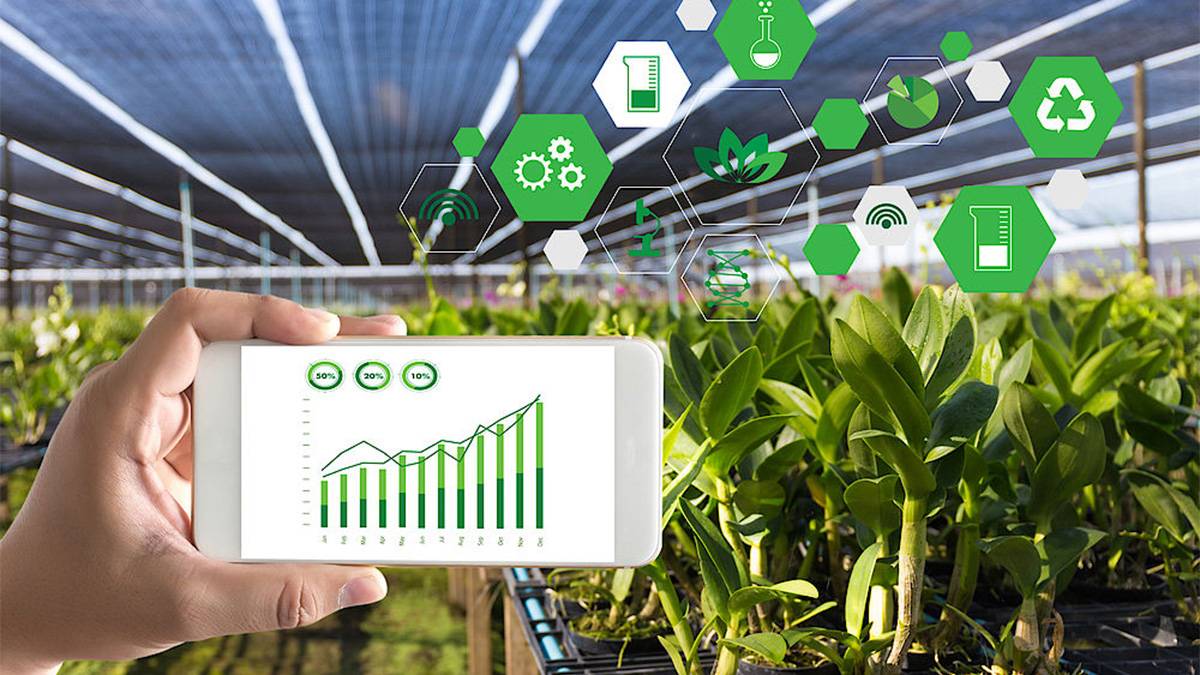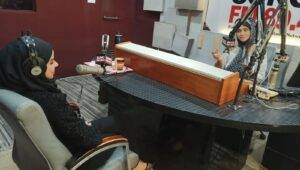A Conversation on Food Security, Sustainable Agriculture, and Smart Technology in Pakistan

In a recent interview at Suno FM 89.4, our Co-founder, Ms. Afifa Khalid, discussed the critical issues surrounding Pakistan’s agriculture and the global food crisis.
Our co-founder, Ms. Afifa Khalid, was recently invited on SunoFM 89.4 radio channel for an insightful interview, touching on Pakistan’s agricultural challenges and the global food crisis. She highlighted that Pakistan currently ranks 102nd out of the 125 countries on the Global Hunger Index 2023, with a significant 40% of the population grappling with serious food insecurity. It’s further alarming to note that Pakistan being one of the lowest carbon emitters, has been included by UNDP among the top ten most vulnerable countries to the impacts of climate change.

Ms. Khalid went on to discuss the tremendous potential within the initiatives like FonGrow, a modern farming project under Green Pakistan Initiative.
The FonGrow project promises a paradigm shift in Pakistan’s agricultural sector, focusing on corporate farming, extensive research and development, and the adoption of smart and sustainable agricultural practices from its inception.
Ms. Khalid emphasised on how the integration of precision agriculture technologies from the beginning can further optimise the use of water, fertilizers, and insecticides, ensuring resource efficiency and better quality. R&D in food fortification to improve the nutritional quality of the crops in a safe and cost-effective way will help reduce micronutrient deficiencies in the population.
Notably, Ms. Khalid discussed the untapped potential of our agricultural residue. Pakistan being an agricultural-based economy, produces vast quantities of residual biomass, which is mostly underutilised or burnt, resulting in the vast emissions of GHGs causing severe air pollution and smog. However, if utilised properly, this residue can be transformed into bioenergy, biofuels and value-added products. These byproducts promise to boost agricultural productivity and contribute to a greener, more sustainable future.

Beyond this, she believes that such initiatives play a pivotal role in creating job opportunities and a promising future for our youngsters within Pakistan. “It’s interesting that this approach goes beyond agricultural development – it’s about establishing a self-sustaining ecosystem. By controlling costs and leveraging such platforms, we have the potential to nurture our own manufacturing sector, reducing our dependence on importing food, raw materials, machinery, and technology. This holistic approach not only addresses food security but also offers a brighter future for the youth of Pakistan, paving the way for a self-reliant and prosperous nation.”
Let’s cultivate a Pakistan that is both food-secure and economically robust, where innovation and prosperity flourish from within. 🌱

